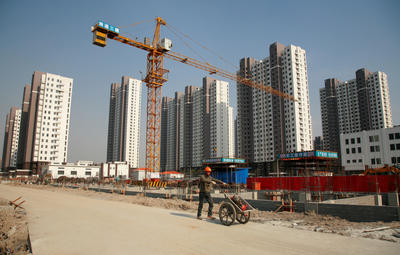Not enough to justify anyone from the WTO Division on Services attending the forthcoming WTO Ministerial Conference in Bali in December.
The simple fact is that during the 12 years since the Doha round of multilateral negotiations was launched, nothing has happened of substance on services in the WTO. In the first 6.5 years, WTO ministers spent a total of two hours on the subject. In July 2008, they spent one Saturday at a Signalling Conference on Services. But since then, another big nothing – although last year saw ministers agree to a waiver for services preferences for least-developed countries, which still remains empty and unimplemented.
No wonder those with an interest in services sector globlisation got fed up with being held hostage to agriculture and manufacturing, which were taking all the attention, but nevertheless getting nowhere. In a last-resort effort to salvage business interest in the WTO, the Global Services Coalition called in 2011 for independent, stand-alone services negotiations on a critical mass, purilateral basis. The idea captured official imagination, and negotiations towards a Trade in Services Agreement (TISA) crept into action in 2012 and took off in earnest in 2013, with 23 countries taking part, including the European Union.
In a decision to remain connected with the multilateral system, and to grow the critical mass required to eventually multilateralise the outcomes, the plurilateral negotiations are being held in Geneva, but not inside the WTO. For a subgroup to meet inside the WTO, all WTO members must agree to let the meetings take place – but the BRICS were hostile to the plurilateral approach, accusing it of sucking the oxygen out of the multilateral system. For the last nine months though, the services plurilateral has been the only flicker of light, attracting the business community back to Geneva and rebuilding negotiating momentum where there had been none.
Then, on Sunday 29 September 2013, something big happened. The Chinese mission to the WTO wrote to each TISA participating country, announcing it wished to participate in the negotiations. The letter confirmed that China has a ‘high level of ambition’ for the negotiations and will participate ‘positively, constructively and equally’. China volunteered to table its market access offer on 4 November 2013, along with all the other participants.
This is a game-changer. In the final lead-up to the WTO Ministerial, China has sent a clear message that it’s willing to take a lead in building the critical mass necessary to multilateralise the TISA, perhaps bringing it back into the WTO fold.
Why would China do this? Partly because having failed in an initial bid to prevent the negotiations, China can see that its commercial interests could be hurt if it remains outside. Partly because other ASEAN countries have signalled that if China takes the lead, they might follow. Partly because China sees that the WTO is poised for irrelevance if new negotiating energy on services is not injected immediately. In a world of global value chains, with services accounting for 50 per cent of world trade in value-added and the bulk of global FDI, the WTO is irrelevant if it focuses only on goods. And because China needs the WTO to be strong, in order to support its domestic reform agenda and its own associated transformation to a more services-oriented economy.
The initial response from TISA participants was positive, but cautious pending some sign from China that it was serious about meeting the required level of ambition. China provided immediate concrete evidence of its constructive intentions. That same week, at the APEC Ministerial meeting in Bali, China announced a revised negotiating position which allows the stalled WTO negotiations on the Information Technology Agreement to reconvene. The pilot Shanghai Free Trade Zone was also, rightly, paraded as a major services reform signal.
Bottom line, while a few TISA participants might remain wary, it would seem blatantly unfair to require China to meet different standards with respect to prior assurances that have been required of other TISA participants. It is ultimately only the United States which continues to voice its scepticism. But if stakeholder consultations go well, the Obama administration has said it will submit a 90-day notice to Congress.
This obliges China to wait and see. China, and also Uruguay, has been asked to sit out the November round of talks, and instead will be briefed at the end of the discussions in a ‘transparency’ session. So the door remains firmly open, perhaps for the subsequent round of talks in February 2014.
The open door is vital to the prospects for the WTO Ministerial Conference in Bali. Very few countries have shown much recent leadership in the WTO. China currently appears willing to rekindle the flame and run with it. Holding China at bay for long is decidedly not in the global economy’s best interests.
Jane Drake-Brockman is a non-executive Director of the Australian Services Roundtable and Principal Consultant at JDB Solutions.

